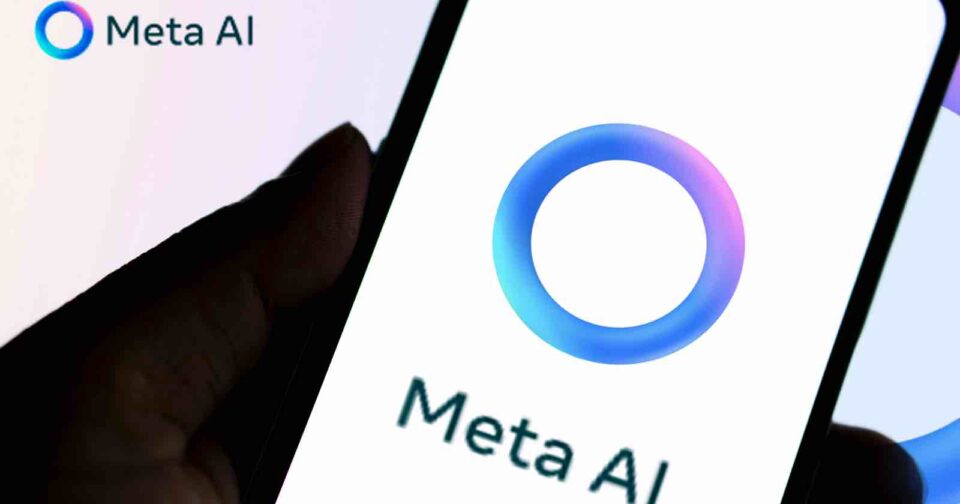In a move that could reshape the future of artificial intelligence, Facebook’s parent company, Meta Platforms Inc., has acquired a new AI application—Meta AI App—signaling its most direct challenge yet to OpenAI’s ChatGPT. With this acquisition, Meta is now positioning itself as a serious contender in the AI chatbot market, an industry that’s rapidly gaining traction across education, customer service, content creation, and more. In this blog, we’ll explore what the Meta AI App is, why this acquisition matters, how it compares to ChatGPT, and what this means for the future of generative AI.
What Is the Meta AI App?
The Meta AI App is a generative AI platform developed to offer chatbot-like functionalities such as text generation, answering questions, summarizing content, and aiding with creative tasks. Initially launched as a lightweight assistant for Facebook and Instagram users, it has since evolved into a standalone app with expanded capabilities, making it a potential alternative to tools like ChatGPT, Google Gemini, and Microsoft Copilot.
The app is built using Meta’s proprietary LLaMA (Large Language Model Meta AI) framework, which has been trained on massive datasets to deliver conversational responses, creative writing, and problem-solving—very similar to what ChatGPT does.
Why Did Meta Acquire the Meta AI App?
Though it may sound strange, Meta didn’t initially release the Meta AI App as a full-fledged, publicly branded product. With growing demand and competition, Meta has now officially acquired and rebranded the app under its core AI division, investing more resources and engineering support into its development.
Key reasons behind the acquisition include:
-
Direct competition with ChatGPT and OpenAI
-
Expanding Meta’s AI product ecosystem beyond social media
-
Creating new AI-powered business tools and assistants
-
Monetization through AI integration in WhatsApp, Instagram, and Facebook
This strategic move gives Meta a stronger foothold in the global AI market—an area that tech giants like Google, Microsoft, and Amazon are also aggressively investing in.
Meta AI vs. ChatGPT: A Growing Rivalry
While OpenAI’s ChatGPT currently dominates the generative AI space with millions of active users, Meta AI is quickly catching up.
Here’s a comparison between the two:
| Feature | Meta AI App | ChatGPT |
|---|---|---|
| Model | LLaMA 3 | GPT-4 (and GPT-3.5 for free users) |
| Accessibility | Instagram, Facebook, WhatsApp, Web | Web, iOS, Android |
| Data Integration | Real-time social media and web search (via Bing) | Bing Search (Plus users), plugins |
| Use Cases | Messaging assistant, search, content creation | Coding, content writing, tutoring, Q&A |
| Voice & Image Support | Rolling out in phases | Available (voice, image, code interpreter) |
| Cost | Free (with limitations) | Free & Paid (ChatGPT Plus) |
While ChatGPT is still seen as more powerful for technical tasks like coding or academic writing, Meta AI has the advantage of tight integration into widely-used platforms like Instagram, WhatsApp, and Messenger, giving it immediate access to billions of users.
How Meta Plans to Challenge ChatGPT
Meta’s strategy isn’t just about releasing a chatbot—it’s about building an ecosystem where AI enhances every part of the user experience.
Key Strategies Include:
-
Seamless Integration: Embedding Meta AI into all of Meta’s products including WhatsApp, Messenger, Instagram, and Facebook.
-
Mobile Optimization: Prioritizing lightweight, fast mobile performance, especially for emerging markets.
-
Creator Tools: Offering AI features for content creators like caption suggestions, image editing, and hashtag generation.
-
Real-Time Assistance: Meta AI provides contextual help in apps—whether you’re writing a message or posting a reel.
-
Privacy and Control: Giving users more options to control how their data is used to train AI models—a concern that has sparked debates with other platforms.
Meta is clearly betting big on everyday AI usage, aiming to make AI an invisible, helpful assistant within daily social media and communication habits.
What This Means for the Future of AI
The battle between Meta AI and ChatGPT reflects a broader trend in technology: AI is becoming central to how we communicate, create, and learn.
This acquisition signals:
-
Increased competition: As Meta joins the race more aggressively, users can expect faster innovation and improved features from all AI platforms.
-
Democratization of AI: With both free and paid options, users across income levels will have access to generative AI.
-
Platform-Wide Adoption: The future isn’t just one chatbot app—it’s AI embedded into everything from emails to video creation.
As AI continues to advance, users should expect smarter assistants, better contextual support, and more personalized tools that go far beyond basic question-answer interactions.
Conclusion
With Meta’s official acquisition and relaunch of the Meta AI App, the landscape of generative AI has taken a major turn. The company is no longer just a social media powerhouse—it’s now a serious AI contender, ready to take on ChatGPT head-to-head.
As the competition heats up, users stand to benefit the most, with more advanced tools, better features, and innovative ways to interact with machines.
Whether you’re a content creator, student, entrepreneur, or casual user, the AI tools you rely on are about to get smarter—and more competitive than ever.

